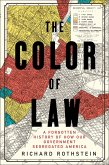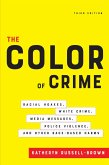In "The Color Line: A Brief in Behalf of the Unborn," William Benjamin Smith adeptly explores the complex intersections of race and society through a critical lens of sociology and ethics. Written in the early 20th century, Smith's work employs a rigorous analytical style that combines empirical research with poignant moral arguments, marking it as an important contribution to racial discourse. The book scrutinizes the impact of societal prejudices on future generations, arguing that the color line perpetuates injustice not only for the living but also for those yet to come. Smith's interdisciplinary approach situates this work within a broader context of social reform and anti-racist activism, resonating with contemporaneous movements advocating for equality and justice. William Benjamin Smith, a prominent figure in social reform and an advocate of racial equality, draws from his background in academia and public policy to craft this compelling narrative. His experiences and observations in a racially divided America deeply influenced his understanding of the systemic barriers faced by marginalized communities. Smith's commitment to exploring the implications of race is rooted in heartfelt moral convictions, reflecting a broader zeitgeist of introspection regarding social justice during his time. This seminal work is recommended for scholars, students, and anyone interested in the socio-political dimensions of race. Smith's argument serves as a critical reminder of the ethical responsibilities we hold toward future generations. "The Color Line" challenges readers to not only reflect on the consequences of present actions but to actively engage in dismantling the structures that hinder equality for all.
Dieser Download kann aus rechtlichen Gründen nur mit Rechnungsadresse in A, B, BG, CY, CZ, D, DK, EW, E, FIN, F, GR, H, IRL, I, LT, L, LR, M, NL, PL, P, R, S, SLO, SK ausgeliefert werden.









